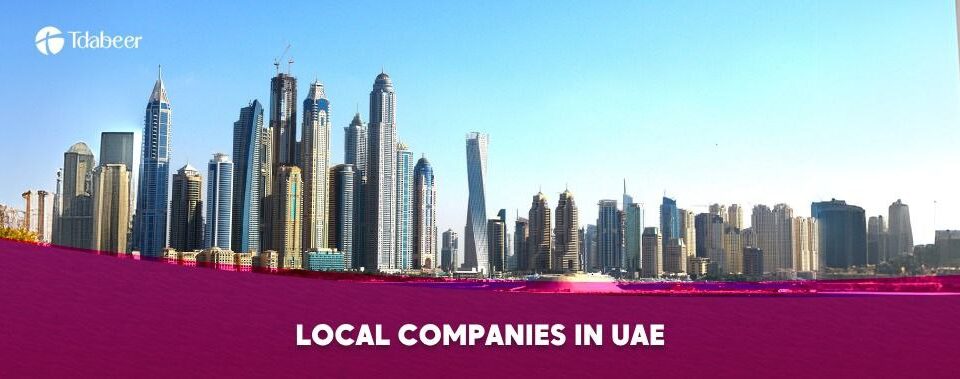
Local Companies in the UAE
The United Arab Emirates (UAE) is widely known as one of the world’s leading business hubs, offering a dynamic environment for local and international companies. With a business-friendly regulatory system, advanced infrastructure, and strategic location, the UAE has nurtured many homegrown companies that play a pivotal role in its economic growth. This article explores some of the key local companies in the UAE and their significance in shaping the country’s economy.
Types of Local Companies in the UAE
Local companies in the UAE can be categorized into several types, primarily:
- Mainland Companies: These are businesses licensed by the Department of Economic Development (DED) and can operate across the UAE and internationally.
- Free Zone Companies: Based in specific Free Zones, these companies benefit from 100% foreign ownership and tax incentives but are limited in their operations within the mainland.
- Offshore Companies: Mainly set up for international business purposes, these companies enjoy flexible legal structures and tax benefits.
The Role of Local Companies in UAE’s Economic Growth
Historically, the UAE’s economy was built on oil production, but local companies have played a critical role in diversifying the economy into other sectors such as real estate, aviation, logistics, and telecommunications. The UAE government’s Vision 2021 emphasized the importance of reducing the country’s dependence on oil and fostering growth in other industries. Local companies have been instrumental in achieving these goals, creating jobs and attracting foreign investment.
Prominent Local Companies in the UAE
Several local companies have not only dominated the UAE market but have also made their mark globally. Here are a few key players:
- Emaar Properties
- Emirates Airline
- DP World
- Abu Dhabi National Oil Company (ADNOC)
- Etisalat Group
- Dubai Islamic Bank
Each of these companies represents a vital sector of the UAE economy and contributes significantly to the country’s GDP.
Sectors Dominated by Local Companies
Local companies dominate many of the key sectors in the UAE, including:
- Real Estate and Construction: Emaar Properties and Nakheel have led the UAE’s urban development with iconic projects like the Burj Khalifa and Palm Jumeirah.
- Oil and Gas: ADNOC is one of the world’s leading oil companies, playing a crucial role in the global energy market.
- Aviation: Emirates Airline has revolutionized air travel and established Dubai as a major aviation hub.
- Telecommunications: Etisalat and du provide critical communication services, powering the country’s digital economy.
- Financial Services: Banks like Dubai Islamic Bank and First Abu Dhabi Bank (FAB) have made the UAE a center for finance in the Middle East.
Emaar Properties: A Leader in Real Estate
Emaar Properties is a name synonymous with luxury real estate and urban development in Dubai. Founded in 1997, Emaar has developed some of the most iconic structures in the world, including:
- Burj Khalifa: The world’s tallest building.
- The Dubai Mall: One of the largest shopping malls globally. Emaar’s contribution to the UAE’s real estate sector has attracted millions of tourists and investors, making it a key player in Dubai’s economy.
Emirates Airline: The Flagship Carrier
Founded in 1985, Emirates Airline is one of the most well-known local companies in the UAE. As the national carrier of Dubai, Emirates has grown into one of the world’s largest airlines, connecting over 150 destinations worldwide. With its hub at Dubai International Airport, the airline has helped position Dubai as a leading travel and tourism destination.
ADNOC: The Energy Powerhouse
The Abu Dhabi National Oil Company (ADNOC) is the backbone of the UAE’s energy sector. Established in 1971, ADNOC has expanded its operations across the entire oil and gas value chain, from exploration to distribution. It operates various subsidiaries specializing in different aspects of the industry, including petrochemicals, refining, and marketing. ADNOC is not only a critical player in the UAE but also a significant contributor to the global energy market.
Etisalat Group: A Telecommunications Giant
The Etisalat Group is one of the largest telecommunications providers in the Middle East, Africa, and Asia, serving over 150 million customers. Established in 1976, Etisalat offers a range of services, including mobile, internet, and cloud services. The company has been instrumental in advancing the UAE’s digital infrastructure, playing a key role in the country’s digital transformation initiatives.
Dubai Islamic Bank: The Pioneer of Islamic Finance
Dubai Islamic Bank (DIB) was founded in 1975 and holds the distinction of being the world’s first fully-fledged Islamic bank. DIB has grown into one of the largest banks in the UAE, offering a wide range of Sharia-compliant financial products and services. The bank’s role in the global Islamic finance industry has cemented the UAE as a leader in this sector.
DP World: Global Logistics and Port Management
DP World is a world leader in logistics and port management, operating over 80 ports in more than 40 countries. Jebel Ali Port, managed by DP World, is one of the world’s busiest ports and is a vital part of Dubai’s role as a global trade hub. DP World has expanded into various sectors, including industrial parks, free zones, and maritime services, contributing significantly to the UAE’s global trade.
Government Support for Local Businesses
The UAE government has been proactive in supporting local businesses through initiatives such as:
- The Khalifa Fund: Offers financial support and mentoring for Emirati entrepreneurs.
- Dubai SME: A government initiative designed to support small and medium-sized enterprises.
- Emiratisation Programs: These initiatives aim to increase the employment of UAE nationals in private-sector companies, ensuring that local companies benefit from homegrown talent.
Challenges Faced by Local Companies
Despite the success of local companies, they face challenges, such as:
- Competition from International Firms: Many multinational companies have established operations in the UAE, creating a competitive environment.
- Regulatory Challenges: Constantly changing regulations and compliance requirements can pose difficulties for local businesses.
- Post-Pandemic Recovery: The COVID-19 pandemic impacted various sectors, and local companies have had to adapt to new economic realities.
Future Prospects for Local Companies
The future looks promising for UAE’s local companies, especially as the country continues to embrace technological innovation, sustainability, and global expansion. As the UAE moves toward a green economy and smart cities, local companies are expected to lead the way in sustainability and digital transformation initiatives.
In Conclusion Local companies are the backbone of the UAE’s economy, contributing to its growth, diversification, and global competitiveness. With support from the government and a forward-looking business environment, these companies are well-positioned to thrive in the coming decades, continuing to shape the UAE’s economic landscape.





